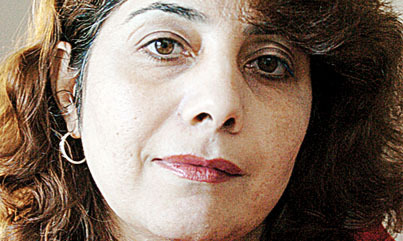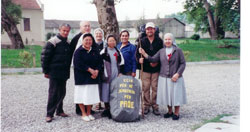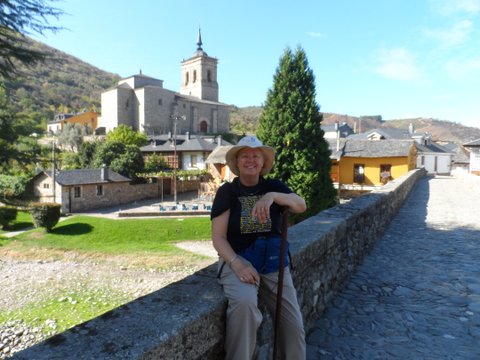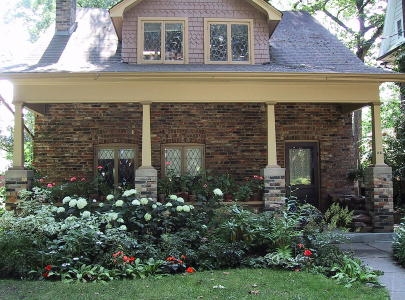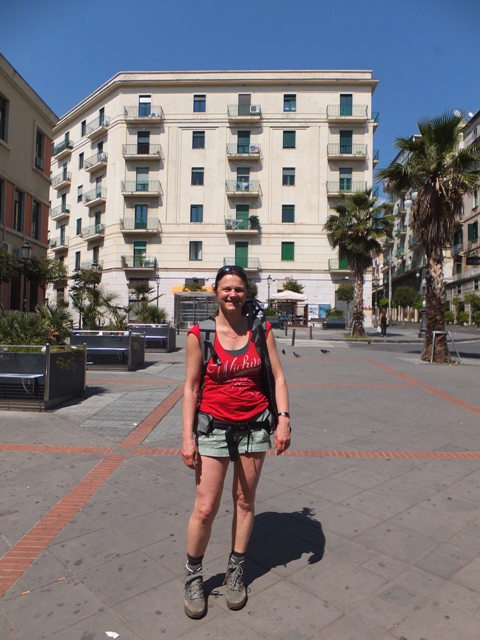The current controversy over the Danish cartoons depicting the Prophet Mohammed has ignited my interest to educate myself more about Islam as I realized that there is so much I don’t know. Ignorance generally breeds suspicion, hate and resentment, and I cringe when I hear generalizing statements along the lines of “All Muslims are….”. This kind of stereotyping doesn’t help anyone and just puts up barriers between people of different backgrounds.
In my own business I work with two Muslim individuals and they are two of the nicest, kindest, most cultured human beings you could ever meet. So to broaden my understanding, I started searching for someone from the Muslim community to shed more light on Islam and the current tensions.
Farzana Hassan, a Pakistani-born Canadian citizen, has held many senior positions in a variety of Muslim and Interfaith organizations and she agreed to share her views on the current controversies and on Islam in general.

Farzana Hassan
1. Please tell us a bit about yourself and your background. Where did you
grow up, what is your family background.
I am originally from Lahore, Pakistan, a bustling city of teeming millions,
boasting of historic sites, reputable educational institutes and centers of
art and culture. I come from a family of civil servants, academicians and
educators. Education was always prized in our family and I attended the top
schools and colleges the city could offer. I later completed my Masters
from the University of Massachusetts. My father Dr. Riaz Hassan, has a
doctorate in Linguistics. My mother Parveen, his first cousin is also a very
highly educated lady with a Bar- at- law from Lincoln’s Inn, London, an M
Litt. from Durham University England, and a PhD in Political Science from
Punjab University. We therefore have a long tradition of literary and
academic pursuits. My maternal great-grand father was an acclaimed
playwright, poet and scholar of Islam. My maternal aunt Dr. Riffat Hassan is
a well-known feminist theologian.
2. At a young age you came to North America. Please tell us about that and where you lived.
I came to North America at the tender age of thirteen and completed High
School from Fall River Massachusetts a few years later.. My parents had
divorced by then. I think there were cultural differences between the two in
spite of being closely related to each other. My father, who is half
British was brought up in a very Anglicized home environment. My mother was
from a more conservative and traditional background. She married my
step-father Dr. Shaukat Ali before we came to the States. Not only was he
an excellent father to me, we were also great friends. After completing
High School I went back to Lahore to complete my bachelors at the Kinnaird
College for Women.
3. Please tell us about your view of Islam. What does Islam mean to you?
Islam for me is a generic concept. It means “surrender to the will of
god”. Whoever surrenders to the Will of God according to their own
particular understanding of God, for me qualifies as a “Muslim” in that
generic sense. This may also offend some people who do not profess Islam.
However, I have arrived at this understanding in order to satisfy an inner
urge prompting me to include all of humanity as being on the path to
salvation. I believe in a basic underlying unity of all faiths. The
different religions are only different expressions of the same message and
axiomatic truths. The Quran articulates what most people of the world
already believe in i.e Transcendence and universally recognized moral
values.
Islam is more rightly characterized as a “Deen” which conforms to the
natural propensities of man. It is a modern expression of man’s natural
religion which recognizes the Ineffable and is imbued with an innate sense
of right and wrong common to all faiths.
4. Please talk to us about the fine distinctions between Islam as a
religion and Islamic cultural practices that are being observed today.
Islam spread in mostly patriarchal societies. Every culture interprets
religious precepts according to its own social mores. Islam too came to be
interpreted in a patriarchal way because of the patriarchal cultures where
it spread. These cultural practices have now come to be regarded as being
synonymous with Islam.
5. Please explain to us the term “Sharia Law” and how recent discussions
have led to some controversies. What is your viewpoint on this?
Shariah is the entire corpus of the public and private life of a Muslim.
“Shariah law” specifically is the codification of the juristic rulings of
the classical jurists of Islam. In the Canadian context the term was being
used for Muslim tribunals that would adjudicate cases pertaining to divorce
and alimony. I do not believe in bringing Shariah law to Canada. If Shariah
is seen merely as a personal moral code inspiring righteous action, then I
don’t have a problem with it. It is the legalities embedded in Shariah
that bother me because they put women and religious minorities at a considerable
disadvantage.
6. Why in your opinion are so many Muslims so angry today? Please comment
on the historical context of this anger.
Muslims rage can be traced back to many events from the time of the
Muslim exodus from Spain. They came to be colonized by Western powers. The
Ottoman Empire was dismantled. The Israeli-Palestinian conflict has fuelled
Muslim anger. And recently the Iraq and Afghanistan wars have further
exacerbated the situation. The anger is directed mostly towards Israel and
the West. I feel that some of it is justified although Muslims are no less
to blame in the current conflicts. They have missed several opportunities
to establish a Palestinian state. Their own polities are dysfunctional in
more ways than one.
